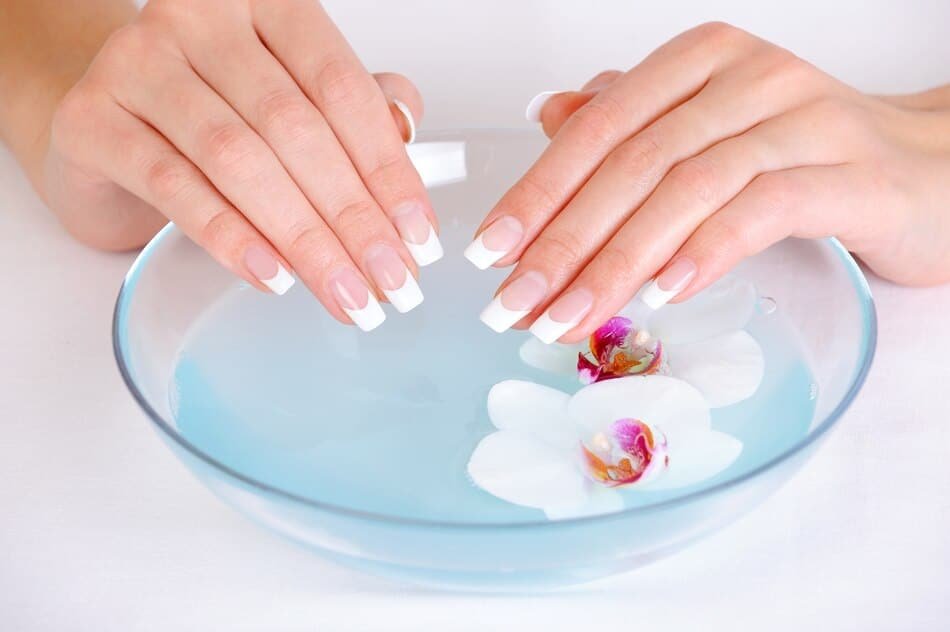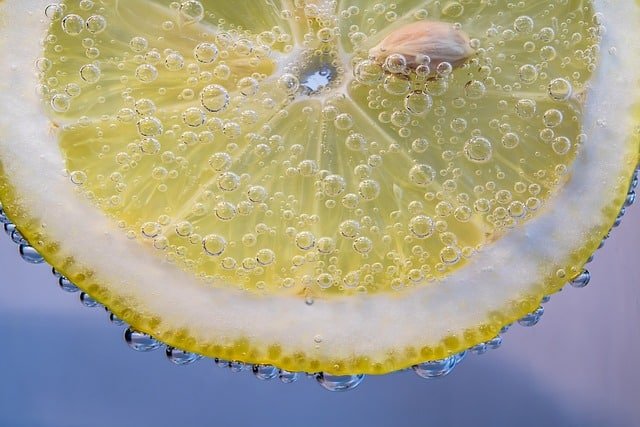In This Article
Introduction
Vitamins are essential for keeping our skin healthy, as vital nutrients supporting various bodily functions. A balanced vitamin intake boosts overall health and improves the skin’s appearance, resulting in a glowing complexion. Let’s explain The major 7 Essential Vitamins for Glowing Skin
Importance of Vitamins for Skin Health
- Vitamin A: This vitamin is crucial for producing and differentiating skin cells, helping to maintain elasticity and firmness. It encourages the growth of new skin cells and minimizes the appearance of fine lines and wrinkles.
- Vitamin C: Renowned for its potent antioxidant properties, Vitamin C protects the skin from free radical damage. It plays a vital role in collagen production, which is necessary for maintaining skin structure and firmness. Plus, Vitamin C can brighten the skin and help reduce pigmentation issues.
- Vitamin E: Another powerful antioxidant, Vitamin E, protects the skin from oxidative stress. It works alongside Vitamin C to enhance skin protection and retain moisture, leading to smoother and more hydrated skin.
- Vitamin D: Often referred to as the “sunshine vitamin,” Vitamin D is essential for skin repair and metabolism. It helps regulate skin cell growth and can improve conditions like psoriasis.
- B Vitamins (e.g., B3, B5): These vitamins contribute to skin barrier function, hydration, and skin tone. Vitamin B3 (niacinamide) reduces redness, blotchiness, and hyperpigmentation, while Vitamin B5 (pantothenic acid) supports skin healing and hydration.
Overview of How Vitamins Contribute to a Radiant Complexion
Vitamins foster a radiant complexion through several vital mechanisms:
- Cell Regeneration: Key vitamins, especially A and C, aid the body in renewing skin cells, resulting in a fresher and more youthful look.
- Protection Against Environmental Damage: Antioxidant vitamins like C and E help protect the skin from the harmful effects of UV rays, pollution, and other environmental stressors, which can accelerate aging.
- Enhanced Hydration: Certain vitamins improve the skin’s ability to retain moisture, creating a plumper and more hydrated appearance.
- Balanced Skin Tone: Vitamins can help regulate melanin production, contributing to an even skin tone and minimizing the appearance of dark spots.
In conclusion, including various vitamins in your diet and skincare routine is crucial for promoting skin health and achieving a radiant complexion. You can enjoy healthier, more vibrant skin by ensuring your body gets the essential nutrients.
1. Vitamin A
Vitamin A is an essential nutrient that plays a significant role in keeping your skin healthy. It’s vital for skin renewal and repair, promoting cell turnover, which involves shedding old skin cells and generating new ones. This process is vital for a youthful appearance and can help minimize the visibility of fine lines and wrinkles.
Benefits for Skin Renewal and Repair
- Cell Turnover: Vitamin A encourages the growth of new skin cells, helping your skin look fresh and vibrant. This is especially important for those with acne or other skin issues since it helps prevent clogged pores and supports clearer skin.
- Collagen Production: This vitamin stimulates the production of collagen, a protein that gives your skin structure and elasticity. Higher collagen levels can lead to firmer, more resilient skin, reducing sagging and promoting a youthful look.
- Moisture Retention: Vitamin A aids in maintaining skin hydration by supporting the skin barrier function. A healthy skin barrier helps prevent moisture loss, keeping your skin supple and warding off dryness.
- Healing Properties: With its anti-inflammatory properties, Vitamin A can soothe irritated skin and promote healing. This is particularly beneficial for those suffering from conditions like eczema or psoriasis.
- Sun Protection: While it shouldn’t replace sunscreen, Vitamin A can help guard your skin against some harmful effects of UV radiation by encouraging healthier skin cells.
Sources of Vitamin A
You can get Vitamin A from various foods, which can be divided into two main categories:
- Preformed Vitamin A (Retinol): This type is found in animal products and is easily absorbed by the body. Some great sources include:
- Liver
- Fish oils
- Egg yolks
- Dairy products (milk, cheese, yogurt)
- Provitamin A Carotenoids: The body converts These plant-based sources into Vitamin A. They are especially abundant in colorful fruits and veggies. Notable sources include:
- Carrots
- Sweet potatoes
- Spinach
- Kale
- Mangoes
- Apricots
Including a variety of these foods in your diet can help ensure you get enough Vitamin A, essential for maintaining overall skin health and promoting renewal.
2. Vitamin C
Vitamin C, also called ascorbic acid, is essential for many functions in the body, mainly when producing collagen. Collagen is a crucial protein that gives structure and elasticity to our skin, cartilage, bones, and other connective tissues. Vitamin C is a cofactor for enzymes that help create collagen, assisting in stabilizing and cross-linking collagen fibers, vital for maintaining healthy skin and warding off signs of aging.
Beyond its role in collagen production, Vitamin C is also a potent antioxidant. This means it helps shield our cells from oxidative stress, damage caused by free radicals, and unstable molecules that can contribute to chronic diseases and aging. Vitamin C is vital to overall cellular health and bolsters the immune system by neutralizing these free radicals.
When it comes to food sources, Vitamin C is plentiful in a variety of fruits and vegetables. Some of the best options include:
- Citrus fruits (like oranges, lemons, and grapefruits)
- Berries (such as strawberries, blueberries, and raspberries)
- Kiwi
- Pineapple
- Papaya
- Bell peppers (especially red and yellow varieties)
- Broccoli
- Brussels sprouts
- Spinach and other leafy greens
Adding these foods to your diet can help you meet your Vitamin C needs, support collagen production, provide antioxidant protection, and contribute to your overall health and well-being.
3. Vitamin E
Vitamin E is an essential nutrient in keeping your skin hydrated and protected. Acting as a potent antioxidant, it helps neutralize free radicals that can harm skin cells and speed up aging. By supporting skin health, Vitamin E aids in moisture retention, which is crucial for maintaining a plump and hydrated appearance.
Importance for Skin Hydration and Protection
One of the critical roles of Vitamin E is enhancing the skin’s barrier function. This barrier is essential for locking in moisture, preventing dryness, and ensuring skin hydration. When your skin is well-hydrated, it looks more radiant and youthful.
Moreover, Vitamin E protects against environmental stressors like UV rays and pollution. Lessening the damaging effects of these factors helps lower the risk of skin issues, including sunburn and premature aging. Regularly using Vitamin E can alleviate irritated skin and contribute to a more even skin tone.
Top Sources of Vitamin E
To make sure you get enough Vitamin E, try including these top sources in your diet:
- Nuts and Seeds: Almonds, sunflower seeds, and hazelnuts are all packed with Vitamin E.
- Vegetable Oils: Oils like wheat germ, sunflower, and safflower are fantastic sources.
- Green Leafy Vegetables: Spinach, kale, and broccoli also provide reasonable amounts of Vitamin E.
- Fruits: Avocados and kiwi are delicious options that boost your Vitamin E intake.
- Fortified Foods: Some cereals and juices are fortified with Vitamin E, making it easier to meet your daily needs.
Adding these Vitamin E-rich foods to your diet can enhance your skin’s hydration and protection, promoting a healthier and more vibrant complexion.
4. Vitamin D
The Connection Between Vitamin D and Skin Health
Vitamin D is essential for maintaining healthy skin, as it plays a vital role in several bodily functions.It promotes the growth, repair, and metabolism of skin cells. When exposed to sunlight, our skin produces Vitamin D, which can help reduce inflammation, enhance skin barrier function, and boost the immune system. This vitamin is also known to aid in the prevention and treatment of specific skin issues, like psoriasis and eczema, by regulating how skin cells grow and shed. Moreover, having adequate Vitamin D levels can strengthen the skin’s natural defenses against infections and promote healing.
Natural sources and supplements
You can get Vitamin D from various natural sources. The best way to absorb it is through sunlight, which enables the body to produce Vitamin D3 (cholecalciferol). Dietary sources include fatty fish such as salmon and mackerel, fish liver oils, fortified dairy products, egg yolks, and specific mushrooms exposed to sunlight. Supplements can be a helpful alternative for those who don’t receive enough sunlight or dietary Vitamin D. These supplements usually come in two forms: D2 (ergocalciferol) and D3. Individuals need to speak with healthcare professionals to find the appropriate dosage and form of Vitamin D that meets their needs, as excessive intake can lead to toxicity and health complications.
5. Vitamin K
Vitamin K is essential for maintaining healthy skin, significantly reducing dark circles, and enhancing overall skin tone. This vitamin is well-known for its role in blood clotting, which can help lessen the visibility of dark circles beneath the eyes. By improving blood circulation and minimizing blood vessel leakage, Vitamin K works to reduce the discoloration that often causes dark circles.
Moreover, Vitamin K assists in the production of proteins vital for skin tissue formation, leading to a more uniform skin tone. Its anti-inflammatory properties can also soothe the skin, giving it a brighter and healthier appearance.
You can find Vitamin K in various foods, including:
- Leafy Greens: Kale, spinach, and Swiss chard are fantastic sources.
- Cruciferous Vegetables: Broccoli and Brussels sprouts offer reasonable amounts.
- Fermented Foods: Natto, a traditional Japanese dish from fermented soybeans, is particularly rich in Vitamin K.
- Meats: Certain meats, especially liver, are high in Vitamin K.
- Dairy Products: Cheese and some dairy items can also boost your Vitamin K intake.
Including these foods in your diet can support skin health and may gradually help reduce dark circles while improving skin tone.
6. B Vitamins
B vitamins are a group of essential water-soluble vitamins that play vital roles in keeping us healthy. They are crucial for producing energy, supporting brain function, and forming red blood cells. While each B vitamin has specific functions, it supports various body processes and contributes to skin health.
Overview of B Vitamins and Their Collective Benefits
The B vitamin complex consists of eight essential vitamins: B1 (thiamine), B2 (riboflavin), B3 (niacin), B5 (pantothenic acid), B6 (pyridoxine), B7 (biotin), B9 (folate), and B12 (cobalamin). These vitamins work together to convert food into energy, promote a healthy nervous system, and support the creation of DNA and RNA. They also help in metabolizing fats, proteins, and carbohydrates.
B vitamins are recognized for their positive effects on skin, hair, and eye health. They help maintain moisture in the skin, improve its elasticity, and enhance overall radiance by supporting the turnover and repair of skin cells.
Specific B Vitamins for Skin Health
- B3 (Niacinamide): This vitamin is celebrated for its anti-inflammatory properties and ability to boost skin barrier function. It enhances hydration, reduces redness, and improves skin texture. Niacinamide is also effective in minimizing the appearance of fine lines and wrinkles, making it a popular choice in skincare products.
- B5 (Pantothenic Acid): B5 is crucial for keeping skin hydrated. It helps retain moisture, giving the skin a plumper and youthful appearance. Pantothenic acid also aids skin healing and regeneration, making it particularly useful for those dealing with acne or other skin irritations.
- B7 (Biotin): While often linked to hair and nail health, biotin also contributes to maintaining healthy skin. It plays a role in metabolizing fatty acids, which are essential for moisturizing skin and preventing dryness.
- B12 (Cobalamin): This vitamin is essential for red blood cell production and can help brighten the skin and improve its overall complexion. A lack of B12 can lead to skin problems like hyperpigmentation or dryness.
Incorporating a well-balanced diet rich in B vitamins can significantly improve skin health. Foods like whole grains, meats, eggs, dairy, legumes, seeds, nuts, and leafy greens are excellent sources of these vital nutrients. Additionally, B vitamin supplements can be helpful, especially for those with dietary restrictions or specific health concerns.
7. Omega-3 Fatty Acids
Omega-3 fatty acids are essential to keeping your skin healthy, especially by supporting the skin barrier and promoting hydration.
Importance for Skin Barrier Function and Hydration
The skin barrier is the outermost layer that protects your skin from environmental harm, prevents water loss, and helps maintain overall hydration. Omega-3 fatty acids are vital to this barrier, ensuring it remains strong and effective. They also have anti-inflammatory properties that help calm skin issues like eczema and psoriasis, reducing redness and irritation. Additionally, Omega-3s assist in the production of natural oils in the skin, which are crucial for maintaining moisture levels and preventing dryness.
Best Sources of Omega-3s
To make sure you’re getting enough Omega-3 fatty acids, try adding these foods to your diet:
- Fatty Fish: Salmon, mackerel, sardines, and trout are loaded with EPA and DHA, two types of Omega-3s that are especially good for your skin.
- Chia Seeds: These tiny seeds are rich in ALA, a plant-based Omega-3, and can easily be mixed into smoothies, yogurt, or oatmeal.
- Walnuts: A nutritious source of ALA, walnuts can be enjoyed as a snack or tossed into salads and baked treats.
- Flaxseeds: Ground flaxseeds are another excellent source of ALA and can be added to various dishes or used as a topping for cereals.
- Algal Oil: This plant-based oil from algae is a good source of DHA and is available as a supplement, making it a fantastic option for vegetarians and vegans.
Including these Omega-3-rich foods in your diet can help boost your skin barrier function, improve hydration levels, and promote overall skin health.
Summarizing the essential vitamins for skin health, their key benefits, and important sources.
| Vitamin | Key Benefits for Skin | Important Sources |
|---|---|---|
| Vitamin A | • Promotes skin renewal and repair • Encourages cell turnover • Stimulates collagen production | • Liver • Fish oils • Egg yolks • Carrots • Sweet potatoes • Spinach |
| Vitamin C | • Crucial for collagen production • Potent antioxidant • Brightens skin and reduces pigmentation | • Citrus fruits • Berries • Bell peppers • Broccoli |
| Vitamin E | • Enhances skin hydration • Protects against environmental stressors • Supports skin barrier function | • Nuts and seeds • Vegetable oils • Green leafy vegetables • Avocados |
| Vitamin D | • Promotes skin cell growth and repair • Reduces inflammation • Enhances skin barrier function | • Sunlight exposure • Fatty fish • Fortified dairy products • Egg yolks |
| Vitamin K | • Reduces dark circles • Improves skin tone • Aids in blood circulation | • Leafy greens • Broccoli • Brussels sprouts • Fermented foods |
| B Vitamins | • Maintain skin moisture • Improve skin elasticity • Enhance overall radiance | • Whole grains • Meats • Eggs • Legumes • Nuts and seeds |
| Omega-3 Fatty Acids | • Support skin barrier function • Promote hydration • Reduce inflammation | • Fatty fish • Chia seeds • Walnuts • Flaxseeds |
Conclusion
To sum it up, essential vitamins are key players in achieving and maintaining that healthy glow for your skin. Essential vitamins like Vitamin C, which helps in collagen production and offers antioxidant protection, and Vitamin E, renowned for its skin-repairing properties, are crucial for a bright complexion. Moreover, Vitamin A promotes the turnover of skin cells and can help minimize the visibility of fine lines and wrinkles. Let’s not forget Vitamin D, which is vital for skin health and can assist in managing inflammatory conditions.
For optimal skin health, including these nutrients in your diet is essential. There are plenty of food sources to help you do this. Consider incorporating citrus fruits, strawberries, and bell peppers into your meals for Vitamin C. Snacks like nuts, seeds, and green leafy vegetables are great options to increase your Vitamin E intake. Don’t overlook Vitamin A; add carrots, sweet potatoes, and leafy greens to your plate. Finally, getting enough sunlight or looking for fortified foods can help you maintain healthy Vitamin D levels.
Focusing on a well-rounded diet that includes these vital vitamins can enhance your skin’s health from the inside out, helping you achieve that desired glow and overall radiance.
Frequently Asked Questions (FAQ)
What are B vitamins, and why are they essential for skin health?
B vitamins are essential nutrients that are vital in various bodily functions. They are crucial for energy production, DNA synthesis, and optimal skin health. These vitamins help keep the skin hydrated, promote cell turnover, and significantly enhance overall skin appearance, making them indispensable for anyone looking to improve their skin condition.
Can B3 (Niacinamide) be used for all skin types?
Absolutely! Niacinamide is versatile and suitable for all skin types, including sensitive ones. Known for its remarkable anti-inflammatory properties, it can help reduce redness and improve skin texture, making it a popular choice among skincare enthusiasts.
How do Omega-3 fatty acids benefit the skin?
Omega-3 fatty acids are potent allies for skin health. They support the skin barrier, promote hydration, and possess anti-inflammatory properties that can alleviate various skin conditions, including eczema and psoriasis. Incorporating these fatty acids into your diet can lead to visibly improved skin.
What is the best way to incorporate B vitamins into my diet?
Incorporating B vitamins into your diet can be easily achieved by consuming a well-balanced diet rich in whole grains, meats, eggs, dairy products, legumes, seeds, nuts, and leafy greens. These foods are excellent sources of B vitamins that your body needs for optimal functions.
Are Omega-3 supplements effective for improving skin health?
Yes, Omega-3 supplements can be quite effective in enhancing skin health, especially for individuals who may not get sufficient Omega-3s from their regular diet. These supplements can help fill the nutritional gaps and support skin vitality.
How often should I consume fatty fish for skin benefits?
To reap the skin benefits of Omega-3 fatty acids, you should include fatty fish in your diet at least two times a week. This frequency ensures your body receives enough essential fatty acids for optimal skin health.
Is biotin necessary for everyone to maintain healthy skin?
While biotin contributes positively to skin health, most individuals obtain adequate amounts from a balanced diet. However, those with specific dietary restrictions or deficiencies may benefit from biotin supplementation for enhanced skin health.
What are the signs of B vitamin deficiency in the skin?
Signs of B vitamin deficiency can manifest as dryness, redness, and various skin irritations. Specific deficiencies in these vitamins may also lead to skin conditions like acne or eczema, highlighting the importance of maintaining sufficient B vitamin levels for healthy skin.
Can I get enough Omega-3s from a vegetarian or vegan diet?
Vegetarians and vegans can obtain sufficient Omega-3 fatty acids through various plant-based sources. Foods such as chia seeds, walnuts, flaxseeds, and algal oil supplements are excellent options for meeting Omega-3 requirements.
Do skincare products containing vitamins make a difference?
Many skincare products formulated with vitamins can make a significant difference in skin health. These products often provide targeted benefits such as enhanced hydration, healing properties, and improved skin tone, making them valuable additions to your skincare routine.
How can I increase Vitamin E intake through diet?
You can quickly increase your Vitamin E intake by consuming various foods such as nuts, seeds, green leafy vegetables, and vegetable oils like sunflower or olive oil. These dietary sources are rich in Vitamin E and contribute to overall skin health.
Is sunlight the only source of Vitamin D?
While sunlight is a primary source of Vitamin D, it is not the only one. Vitamin D can also be obtained from fortified foods and certain dietary supplements, making it possible to maintain adequate levels throughout the year, regardless of sun exposure.

Florence
Florence Delisy is a dedicated skincare and beauty expert with extensive industry experience. Certified in skincare and cosmetology from University of the Arts London, she specializes in personalized skincare routines, anti-aging treatments, and beauty consultations. Florence is committed to helping clients achieve healthy, radiant skin through tailored solutions and education on effective skincare practices.







